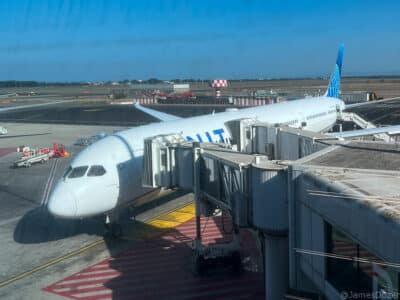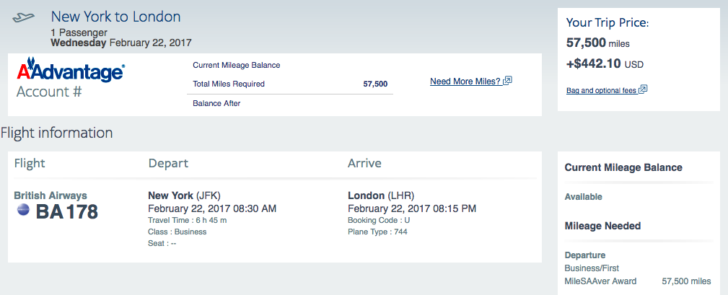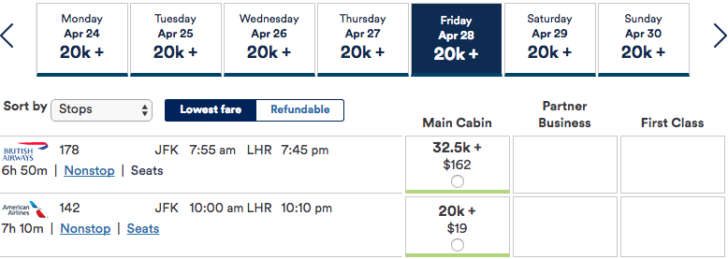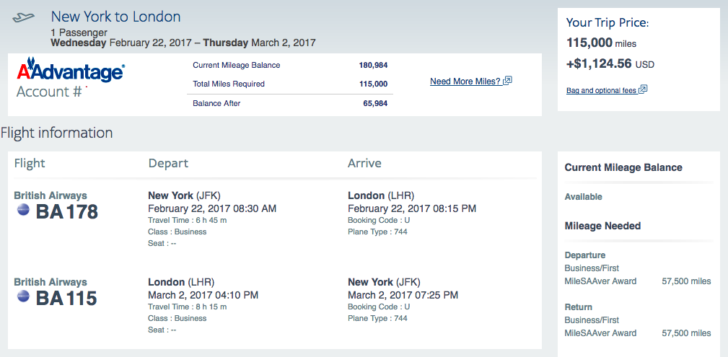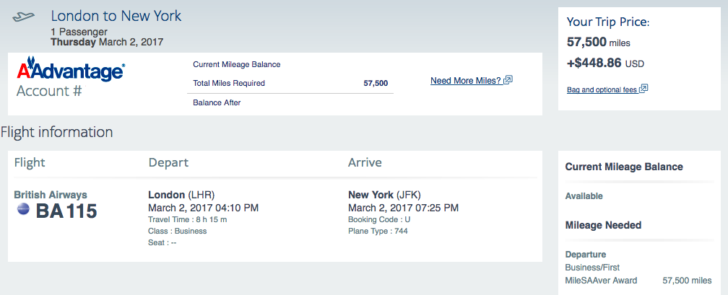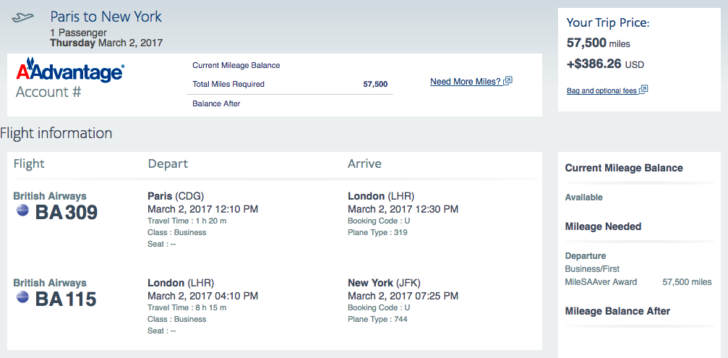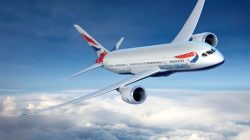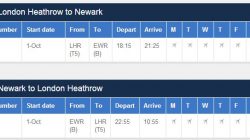In the world of frequent flyer programs, it sometimes seems like we have an unofficial motto: friends don’t let friends book award travel on British Airways. It’s not an issue of quality or service (although some have their complaints). Rather, the most obvious problem is the high fees.
- Traveling on British Airways means paying carrier surcharges, even if you use miles issued by another airline like American Airlines or Alaska Airlines to book the ticket.
- British Airways isn’t alone in collecting these fees, but it charges more than most other airlines.
- Because you’re flying on British Airways, you are likely to fly through London Heathrow, which has some unusually high airport taxes added on top of the carrier surcharge.
Fortunately there are still many tricks you can keep up your sleeve to make these fees a little less onerous than first expected. In this post I’ll show a few simple changes to a round-trip flight between New York and London that can lower the fees for a business class award from $1,124.56 to $391.86.
Try to Fly Another Airline
If at all possible, avoid the problem by flying a different carrier. Obviously we don’t always get what we want, and sometimes traveling on British Airways is required. American Airlines is particularly well known for releasing so few award seats on its own planes, so you’re likely stuck with BA if you want to go to Europe.
At least pay attention when you look through search results. I would hate for someone to have options and then make a bad choice, paying hundreds more in fees without even realizing it.
Carriers like Aer Lingus and Airberlin offer fewer routes, but their fees are lower much like those at American Airlines. Try visiting their websites or go to OpenFlights.org to see which carriers serve your market.
Take the example of a one-way business class award from New York (JFK) to London (LHR). American AAdvantage will collect 57,500 miles whether you fly American Airlines or British Airways. However, the fees on AA are just $5.60, while they are $442.10 for flying on BA.
This is a problem in economy class, too! Here’s one example where Alaska Airlines Mileage Plan is charging both lower fees and fewer miles to fly on American instead of British Airways.
You can also mix and match carriers as part of a longer itinerary. Just because you want to go to Edinburgh doesn’t mean you need to fly on British Airways the whole way. It’s possible to fly American Airlines across the Atlantic Ocean and then connect to a local BA flight within Europe. (Rules vary by loyalty program; Alaska Airlines actually requires you to fly the same carrier, but this might be a case where it makes sense to redeem more miles by booking separate tickets.)
Book Two One-Way Awards
Carrier surcharges for award travel are easy to find in advance because they are based on the fees normally applied to a ticket bought with cash. Government taxes and fees also apply. Your miles (or Avios) are only covering the base fare when you travel on British Airways.
These surcharges are determined by a complex pricing logic that looks at things like your origin, destination, and whether it’s a one-way or round-trip ticket. Fuel dumping is a related practice that’s all about trying to trick the system into eliminating surcharges entirely. However, fuel dumping doesn’t work for award travel.
What we can do is take advantage of the fact that one-way and round-trip tickets get different surcharges. Often the surcharges on two one-way tickets are lower than the surcharge on a single round-trip ticket.
Here’s an example of a return fare from London to New York, to match the outbound journey I already found above. Notice the total taxes and fees (which include stuff other than the surcharge) are $1,124.56.
But if you booked the return journey separately, the taxes and fees would be $448.86. Adding that to the $442.10 you already paid for the outbound journey, the total taxes and fees for two one-way tickets is $890.96.
Would you be willing to go through the hassle of booking separate tickets to pay $890.96 instead of $1,124.56? Most people would say yes. It takes only a few more minutes and saves you $233.60 — almost 21% — in lower fees.
Most airlines charge the same number of miles for one-way and round-trip awards, which means you won’t redeem any more points or miles to get the same trip. Only the out-of-pocket fees will change. Be aware that making changes to your ticket might also be more expensive. Canceling two one-way awards, for example, will cost twice as much as a single round-trip award because these are entirely separate reservations.
Fly Back from a Different Airport
Airport taxes and fees have multiple levels of detail, but on basic level they break down into “transit” fees that only apply when passing through and “departure” fees that only apply if you originate your journey there. British Airways’ main hub at London Heathrow has particularly high departure fees, including a special government luxury tax that applies to travelers in business and first class.
You can avoid or reduce these fees by starting your journey home from another airport. The simplest option is to fly British Airways to a city other than London, but you don’t have to pass on seeing it altogether. Just make sure that London is the first city you visit–not the last.
A simple example is to fly into London Heathrow, spend a few days, take the Eurostar to Paris, and fly home from Charles de Gaulle. Or take a short flight from London to another European city (the luxury tax is distance-based). Your flight home will still connect in London, but you’ll only pay much lower transit fees.
Cities in Europe with relatively low departure fees include Rome, Madrid, Barcelona, Paris, and Dublin. Here’s one example from Paris that connects to the same return flight in the example above. Even though France has its own luxury taxes the fees are still lower.
Conclusion
Never feel like you have to fork over hundreds of dollars just to use your miles. It may be common when using British Airways own Executive Club program, but most U.S. travelers are not used to high fees on award tickets. Unfortunately American AAdvantage and Alaska Mileage Plan both pass on the fees at British Airways’ request.
In the examples used for this post, flying on American Airlines on the outbound leg (if space is available), can cut fees by over $400 right away. Next, splitting the reservation into two one-way awards saved another $200+. Finally, spending a couple days in Paris before returning home shaved another ~$50 off the return journey. You may not be able to use every approach on your next trip, but keep them in mind to make the most of your next European vacation.

